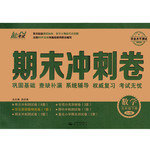题目内容
Their youngest child is at the stage ___________she can say a few words but not full sentences.
A. where B. that C. which D. When
A
【解析】
试题分析:考查状语从句。这是一个特殊的状语从句,引导词用where,类似的还有position、dilemma等。句意:他们最小的孩子处于一个阶段:他们能会说几个字但是不能说完整的句子。故选A
考点:考查状语从句

练习册系列答案
 能考试期末冲刺卷系列答案
能考试期末冲刺卷系列答案
相关题目